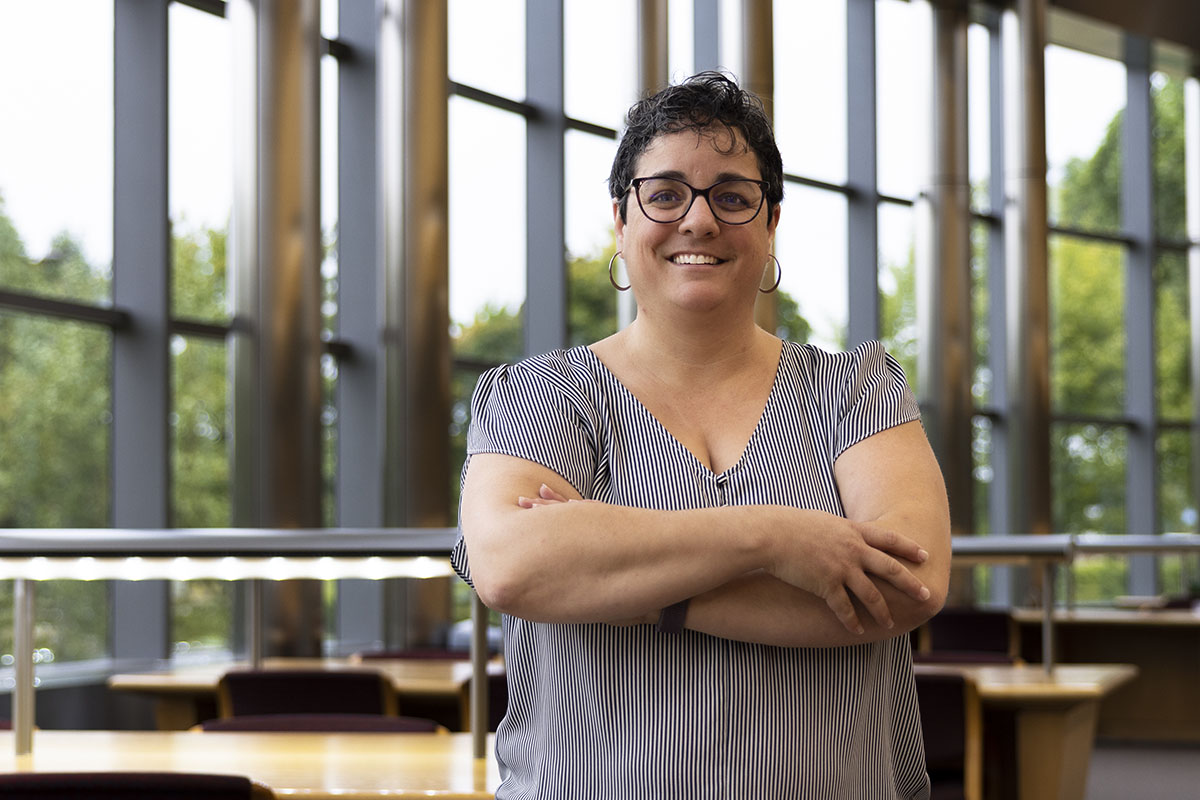
Elizabeth Cunningham, associate professor of mathematics education at the University of Michigan-Flint, and Traci Shizu Kutaka, research assistant professor at the University of Virginia—both alumni of the University of Nebraska-Lincoln Center for Science, Mathematics, and Computer Education’s Primarily Math program—collaborated with Caroline B. Eddy, senior lecturer at the University of Pennsylvania’s Graduate School of Education, on a recently awarded $1.7 million research proposal funded by the U.S. Department of Education’s Institute of Education Sciences. The project will explore whether incorporating math education theory into preservice training can positively impact the mathematical thinking and reasoning skills of K-5 students.
Cunningham taught elementary math and served as a professional development facilitator before becoming a mathematics education professor at UM-Flint. She earned her PhD in education from UNL in 2015 and was involved with Primarily Math as a graduate research and teaching assistant. Throughout her career, she has been conscious of a discrepancy between how math teachers are trained and research findings about how students learn math.
"Sharing research on children's learning progressions was the focus of much of the professional development that I facilitated, and it seemed that this knowledge was only being shared in post-training workshops and courses," Cunningham told UM-Flint NOW. "I always heard from teachers in those courses, 'Why didn't I learn about this in my preservice training? Why am I only learning about this now?' This theory shows up in the math curriculum packages that school districts choose. Still, teachers weren't being taught why the curriculum was developed and delivered in that specific way, or how they might use it based on the unique learning needs of their classrooms."
During the four-year IES research project, the investigators will focus on three learning progression frameworks developed by the Ongoing Assessment Project. The frameworks, designed to support PK-6 math teachers in understanding how to best serve their students, translate research theory into practical learning progressions.
"This grant will help us gauge the impact of including learning progressions in preservice training on students' mathematical thinking and skill development in these novice teachers' classrooms," Cunningham said.
Both Cunningham and Kutaka, who earned her PhD from UNL in 2013 and contributed to Primarily Math as a graduate research assistant, said that Primarily Math helped them learn the importance of providing and strengthening early mathematics experiences for young children. Cunningham also noted the importance of relationship building and learning to talk with researchers in other fields of study.
"The most important thing [from Primarily Math] that led to this grant is the partnership Traci Kutaka and I developed while at UNL," Cunningham said. "Traci knew of my research dreams, and we are working together to make them a reality. In addition, the mentorship from Ruth Heaton, Caroline Edwards, and Wendy Smith are central to the academic I have become."
Kutaka, too, credits the skills developed through working relationships with mentors and fellow students during Primarily Math as essential to securing the grant funding.
"I had the good fortune of working under the mentorship of Drs. Carolyn Pope Edwards and Ruth Heaton, both of whom were intellectually generous and patient leaders," Kutaka said. "I also received day-to-day direction and support from Dr. Wendy Smith, who taught a rather motley crew of developmental psychologists, teacher educators, and mathematicians how to listen to and appreciate other epistemic and disciplinary perspectives about what it means to enact high-quality mathematics instruction. There was a lot of laughter and a lot of (loving) arguing during research meetings (about very nerdy, somewhat esoteric topics). I can’t put into words how important those skills remain in my day-to-day work.
"Working for [Primarily Math] was the most difficult, joyful, and fulfilling part of my graduate experience," Kutaka added. "I met Liz (and all of her dogs) through this project. I expect there will be much laughter and panicked phone calls to other [Primarily Math] friends for advice as we move forward with the project."